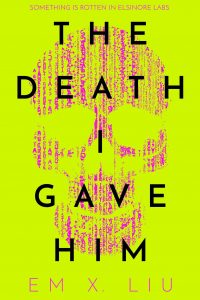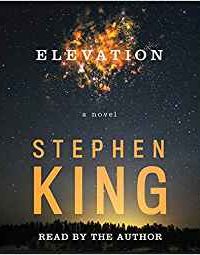Rich Horton Reviews New Suns, Edited by Nisi Shawl
 New Suns, Nisi Shawl, ed. (Solaris 978-1-78108-578-3, $15.99, 279pp, tp) March 2019.
New Suns, Nisi Shawl, ed. (Solaris 978-1-78108-578-3, $15.99, 279pp, tp) March 2019.
New Suns is subtitled “Original Speculative Fiction by People of Color”. I hope it’s not news to anyone that there are a lot of people of color who write spectacular speculative fiction. This book includes writers of Hispanic heritage, those from all over Asia, those of Native American heritage, and of course African and African-American writers. It would be silly to say that the only thing that matters in this book is the excellence of the fiction – though that’s the most important thing, but here we also see the value of different histories, both personal and cultural, in informing the imagination. It’s fascinating to see points-of-view that we just didn’t see in American SF books even a couple of decades ago. To begin with, this is a really strong anthology, especially on the SF side.
Speculative Fiction here includes, as we expect, fantasy, horror, and SF. I’ll begin with horror, and my usual disclaimer: I’m not really a horror aficionado. I liked Steven Barnes’s almost droll, if blackly so, “Come to Atropos”, which comprises advertising material for what might be called Caribbean Death Tourism. “Burn the Ships” by Alberto Yáñez tells of the desperate and dangerous strategy of Aztec (I assume) resistance to the pale invaders – there’s some effective moral balancing portrayed here. Jaymee Goh’s “The Freedom of the Shifting Seas” has an original scary monster, a massive half-woman seaworm, but the story never really took off for me; the beats were too obvious from the first. I did like Alex Jennings’s “unkind of mercy”, a subtler story about a woman and her comedian boyfriend, struggling. She begins to see – well, not see – something strange at the edge of her vision. Chekhov’s gun goes off at the end, after her boyfriend gets a bit of a break, and maybe lets his success go a bit to his head – well, as I said, it’s subtle, but subtly scary. Likewise subtle and effectively scary is Silvia Moreno-Garcia’s “Give Me Your Black Wings Oh Sister”, about a woman whose baby brother died an infant, and who is haunted by dreams and legends about baby devourers.
More purely fantasy is Minsoo Kang’s “The Virtue of Unfaithful Translations”, which tells of the secret history behind a rare case in a bloody empire’s history in which a war was avoided. The mad Sixth Emperor of the Primal Dynasty was meant to fight the Great Sea Dragon, a warlord of the South Ocean. No matter who won, the destruction and death toll would have been horrifying, but instead a peace treaty was reached. The title hints at the answer – two obscure people, the man assigned as translator for the Emperor, and the woman translating for the warlord, altered the missives between the two to engineer a treaty. Clever and enjoyably told, but a bit predictable – until the end, when the after story for the two translators is discussed, and the possibility of unfaithful translations is again raised. E. Lily Yu, in “Three Variations on a Theme of Imperial Attire”, retells “The Emperor’s New Clothes” three times, more darkly each time: what would a real all-powerful emperor do in such a situation? The story marries humor, cynicism, and tragedy very well.
Some good stories there – but as I mentioned, I thought the science fiction was the best part of this book. Chinelo Onwualu’s “The Fine Print” reads like fantasy, and arguably is: it features a djinn who offers wishes, spells, and prices to be paid (like your first-born child), and even fox women, but I think there are SFnal explanations for all of those, and the story is affecting and honest and draws an excellent moral. Its protagonist, Nuhu, owes the djinn his son for the gift of his wife, but Nuhu refuses and confronts the djinn in its headquarters – and then we learn what’s really going on. I found it really striking and effective.
Idrapramit Das’s “The Shadow We Cast Through Time” is about a human colony on a difficult world, isolated after their wormhole link collapsed. Outside their cities are “demons” of uncertain origin. Those about to die, as well as those foolish enough to wander out, end up feeding the demons. Again, though, there is a mystery here, revealed (with ambiguity) in the tale of a woman who is ready to die after a long career as a mother. One real question here is, now isolated from the rest of humanity, will they truly become part of this planet?
Finally, Anil Menon’s “The Robots of Eden” is about a man whose wife is divorcing him. The story concerns his meeting with his wife and her new lover, as well as the man’s daughter, now living in Boston, while he remains with his business in Mumbai. They are all “enhanced” – fitted with an implant that controls their emotions – so the protagonist doesn’t get too angry about the divorce, for example. But how will their newly enhanced daughter react to her move away from her father? And what about their unenhanced servant? More serpents appear in this Eden, as we learn about the new lover’s career as a writer, and the protagonist’s memories of his enjoyment of Orhan Pamuk…. The theme is an old one, but well emphasized with, for example, attention to class distinctions. Another strong piece.
This is a strongly balanced anthology, and a powerful one – surely one of the best original anthologies of 2019.
Rich Horton works for a major aerospace company in St. Louis MO. He has published over a dozen anthologies, including the yearly series The Year’s Best Science Fiction and Fantasy from Prime Books, and he is the Reprint Editor for Lightspeed Magazine. He contributes articles and reviews on SF and SF history to numerous publications.
This review and more like it in the May 2019 issue of Locus.
 While you are here, please take a moment to support Locus with a one-time or recurring donation. We rely on reader donations to keep the magazine and site going, and would like to keep the site paywall free, but WE NEED YOUR FINANCIAL SUPPORT to continue quality coverage of the science fiction and fantasy field.
While you are here, please take a moment to support Locus with a one-time or recurring donation. We rely on reader donations to keep the magazine and site going, and would like to keep the site paywall free, but WE NEED YOUR FINANCIAL SUPPORT to continue quality coverage of the science fiction and fantasy field.







